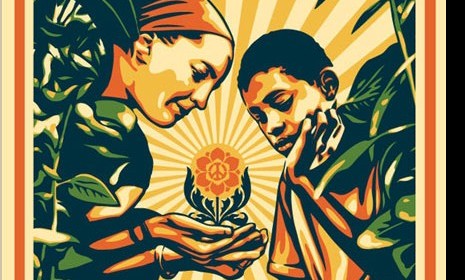The Peace Corps' rape insensitivity crisis
More than 1,000 former volunteers say they were raped or sexually assaulted while serving. Did the agency ignore their plight?

A free daily email with the biggest news stories of the day – and the best features from TheWeek.com
You are now subscribed
Your newsletter sign-up was successful
According to the Peace Corps website, volunteering with the agency, which serves 77 countries around the world and was created 50 years ago by President Kennedy, is "a life-defining leadership experience." But some of the corps' female volunteers seem to have had their experience defined by sexual assault. More and more past volunteers are coming forward to say they were sexually assaulted or raped while serving, and reporting that the Peace Corps' response was insensitive and insufficient. Congress is considering legislation that would require the agency to improve its handling of sexual assaults. Here, a brief guide:
What's going on?
A growing number of former Peace Corps volunteers are coming forward with stories of being sexually assaulted. As reported in a January 20/20 investigation, more than 1,000 volunteers reported incidents of sexual assault between 2000 and 2009. Since sexual assaults often go unreported, experts says the number of incidents may be twice as large. On Wednesday, the House Foreign Affairs Committee held a hearing to examine these "serious crimes," as they've been called by the committee chairwoman, Rep. Ileana Ros-Lehtinen (R-Fla.).
The Week
Escape your echo chamber. Get the facts behind the news, plus analysis from multiple perspectives.

Sign up for The Week's Free Newsletters
From our morning news briefing to a weekly Good News Newsletter, get the best of The Week delivered directly to your inbox.
From our morning news briefing to a weekly Good News Newsletter, get the best of The Week delivered directly to your inbox.
Was the Peace Corps somehow complicit?
Some volunteers say yes. In 2007, Jessica Gregg, then a volunteer, was drugged and sexually assaulted in Mozambique. She says a Peace Corps medical officer "made me write in my testimony that I was intoxicated" and insinuated that "I willingly had sex with this guy." Jessica Smochek was brutally gang raped while serving in Bangladesh in 2004. Before the attack, she repeatedly told Peace Corps officials that she was being harassed and felt unsafe. After the attack, she says the agency made her feel as if it had been her fault.
So there's a pattern here?
These women's stories are "shockingly consistent," says Karestan Koenen in The Boston Globe. "They report that their training was inadequate and that the Peace Corps' response to their rape was callous, dismissive, or woefully insufficient."
A free daily email with the biggest news stories of the day – and the best features from TheWeek.com
What is being done now?
On Wednesday, Peace Corps Director Aaron S. Williams conceded that the agency had not been "sufficiently responsive or sensitive" to the victims and their families. He pledged to curb the culture of "blaming the victim," and update how training videos deal with sexual assault. (A controversial training video featuring victims discussing ways they may have provoked sexual assaults has since been pulled.) He also suggested better counseling and advocacy for victims. Some victims are pressing for Congress to mandate "sexual assault response teams" to provide emergency care after an attack, collect forensic evidence, and advocate for victims.
Sources: Peacecorps.gov, New York Times, ABC News 20/20 (2), Washington Post, Boston Globe
-
 Political cartoons for February 15
Political cartoons for February 15Cartoons Sunday's political cartoons include political ventriloquism, Europe in the middle, and more
-
 The broken water companies failing England and Wales
The broken water companies failing England and WalesExplainer With rising bills, deteriorating river health and a lack of investment, regulators face an uphill battle to stabilise the industry
-
 A thrilling foodie city in northern Japan
A thrilling foodie city in northern JapanThe Week Recommends The food scene here is ‘unspoilt’ and ‘fun’